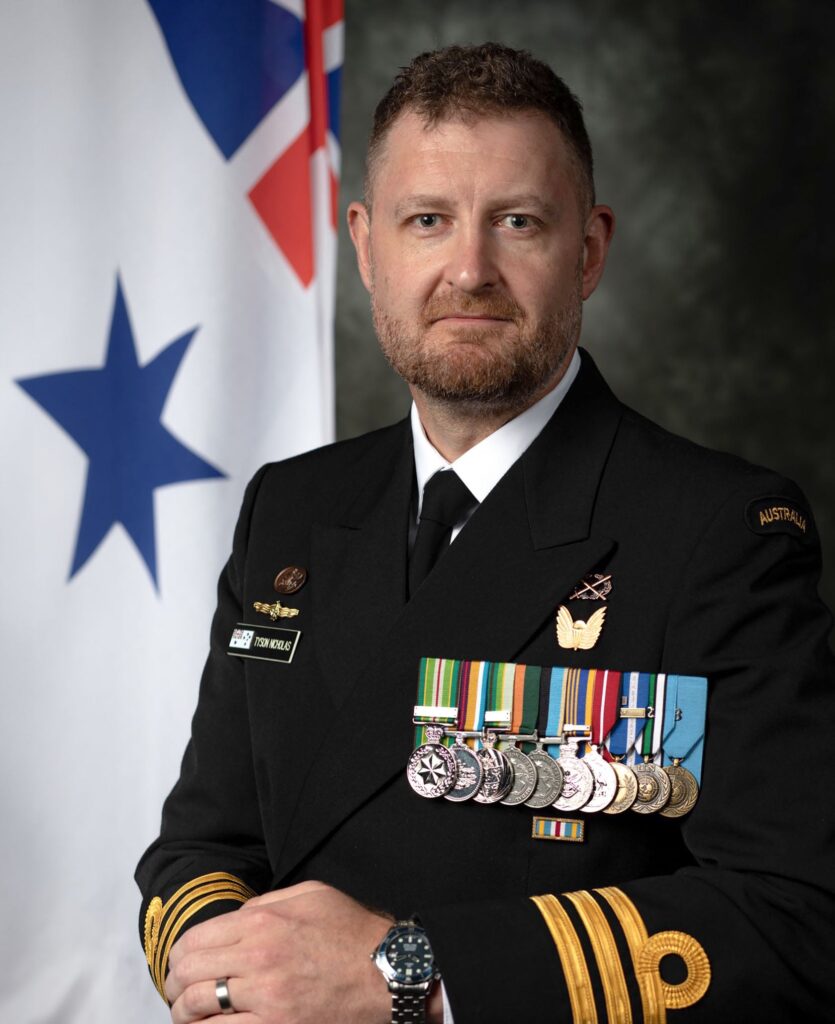

Tyson Nicholas, UN Women Strategic Military Advisor. Photo: UN Women/Australian Defence Force
Commander Tyson Nicholas, an active-duty Australian Defence Force officer, is currently seconded to UN Women as a strategic military advisor. With extensive experience in conflict and unstable situations, she has served in various capacities in UN peacekeeping operations, the Australian Defence Force and the North Atlantic Treaty Organisation (NATO). We spoke to Tyson at the launch of the Women’s Military Peacekeeping Course (WMPOC) in Seoul, South Korea, which brought together trainees from 12 countries in the Asia-Pacific region to further their professional development and prepare for deployment to UN peacekeeping operations. Tyson is the program manager for the course.
My motivation for working on gender equality and women’s empowerment comes from a desire to effect positive change after witnessing the disproportionate and discriminatory impacts of conflict and fragility on civilians, particularly women and girls. This includes witnessing targeted killings, sexual violence and other gender-based violence disproportionately affecting women and girls during my time at the UN Mission in South Sudan, during multiple deployments to Afghanistan and Iraq, and during humanitarian and disaster relief efforts in the Asia-Pacific region.
Gender equality and women’s empowerment are not only fundamental principles of the right to be free from discrimination, but also essential elements for the realization of peace and security, development and human rights. Research is conclusive: gender inequality is a driver of broader social inequalities, situations of armed conflict and fragility. Therefore, gender equality and women’s empowerment must be a priority in national, regional and international security issues.
WMPOC aims to develop women to serve as mission professionals or staff officers in UN peacekeeping operations. It also provides a pathway for women to assume leadership roles in UN peacekeeping and contributes to the UN Uniformed Forces Gender Equality Strategy, which aims for women’s full, equal and meaningful participation in UN peacekeeping operations. The contribution of female military personnel to the operational capacity of UN peacekeeping operations is essential. Women’s full, equal and meaningful participation is a fundamental right and an essential element of non-discrimination and improved effectiveness of UN peacekeeping operations.
Structural and normative change is needed to shift the debate and enact concrete change to ensure women’s full, equal and meaningful participation in UN peacekeeping operations, Member State armies and the security sector more broadly. This includes identifying and remedying the structural, procedural and cultural barriers to women’s service in areas that have traditionally been male dominated. Cultural change is essential and effecting change in these areas requires men to take action and demonstrate their support in advancing gender equality through programs such as HeForShe.
The most rewarding part of my job is being able to demonstrate partnerships and take action to advance gender equality and address the most pressing needs of women and girls in fragile and conflict-affected environments. This includes working for the full, equal and meaningful participation of female military personnel in UN peacekeeping operations and working collaboratively with other men, particularly military personnel, on gender equality issues.
Above all else, my ability to be the positive change I want to see in the world is what I am most proud of.
WMPOC is an initiative of UN Women supported by the Department of Peace Operations’ (DPO) Integrated Training Services (ITS) and various Member States through their National Training Centers which fund and lead the pre-deployment training of peacekeepers. This year’s course is hosted by the Republic of Korea Ministry of National Defense and the Republic of Korea Peacekeeping Operations Centre (ROKPKOC) with the support of UN Women’s Center of Excellence for Gender Equality.
Tara Thomas Agency stands at the forefront of the entertainment industry, with years of experience dedicated to nurturing the most exceptional talents and successful acts.